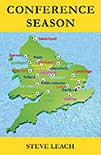 by Steve Leach
by Steve Leach
Bennion Keaney Ltd, £11.99
Reviewed by Matthew Gooding
From WSC 329 July 2014
Often erroneously likened to a fifth division of the Football League, the Football Conference could more accurately be described as a halfway house. Non-League’s top tier is home to a curious mix of teams; professional clubs who have fallen on hard times compete alongside new names making their way up the pyramid and getting a first taste of the big time.
Into this world steps Steve Leach, a Manchester City fan who, having grown disillusioned with the commercialisation and “over-paid prima donnas” of the Premier League, decides to focus his attentions on non-League instead. Conference Season is a diary of his travels around the country in the 2012-13 season, during which he takes in a match at every Conference club as he bids to “rediscover the soul of professional football”.
Throughout the book you get the impression that the author yearns for the days of his youth in the 1950s and 1960s, when top-level football matches were attended by thousands of working-class folk from their local community. Large crowds and red-hot atmosphere are certainly not in abundance in the Conference, and Leach’s wish to paint the league as a window to a glorious bygone era means he ignores the fact that it is a competition which is often as distorted by money and egotistical owners as the Premier League he wants to leave behind. As a result, Hyde’s tie-in with Manchester City, where they were paid to change their club colours to sky blue and remove the “United” part of their name, is briefly mentioned but not subjected to any critical analysis. Ditto an acrimonious boardroom split he encounters at Macclesfield, while the many battles for control of the author’s hometown club Stockport County, which sparked their rapid descent through the divisions from League One to the Conference North, are not touched on at all.
We rarely hear from fans of the teams involved. When Leach does engage them in conversation, it tends to be on matters of player selection and form, rather than looking at the joys of supporting a non-League side and the role their club plays in the community. As a result, the whole affair feels somewhat distant, and all we are left with are a series of clunky anecdotes and the author’s glib and often patronising observations; seasoned non-League supporters will enjoy his amazement at the fact that two sets of fans can co-exist in the same bar without resorting to violence, or that some games of football are played without crowd segregation.
Leach is a professor of Local Government, and it becomes apparent this is where his expertise lie as he describes the growth, and in some cases decline, of the towns he visits with passion and insight. It’s a shame that the football side of Conference Season rarely delivers either of these qualities.
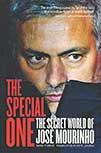 The secret world
of José Mourinho
The secret world
of José Mourinho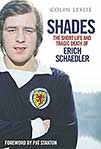 The short life and tragic death of Erich Schaedler
The short life and tragic death of Erich Schaedler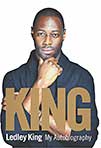 Ledley King: My autobiography
Ledley King: My autobiography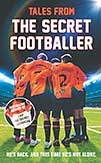 by The Secret Footballer
by The Secret Footballer